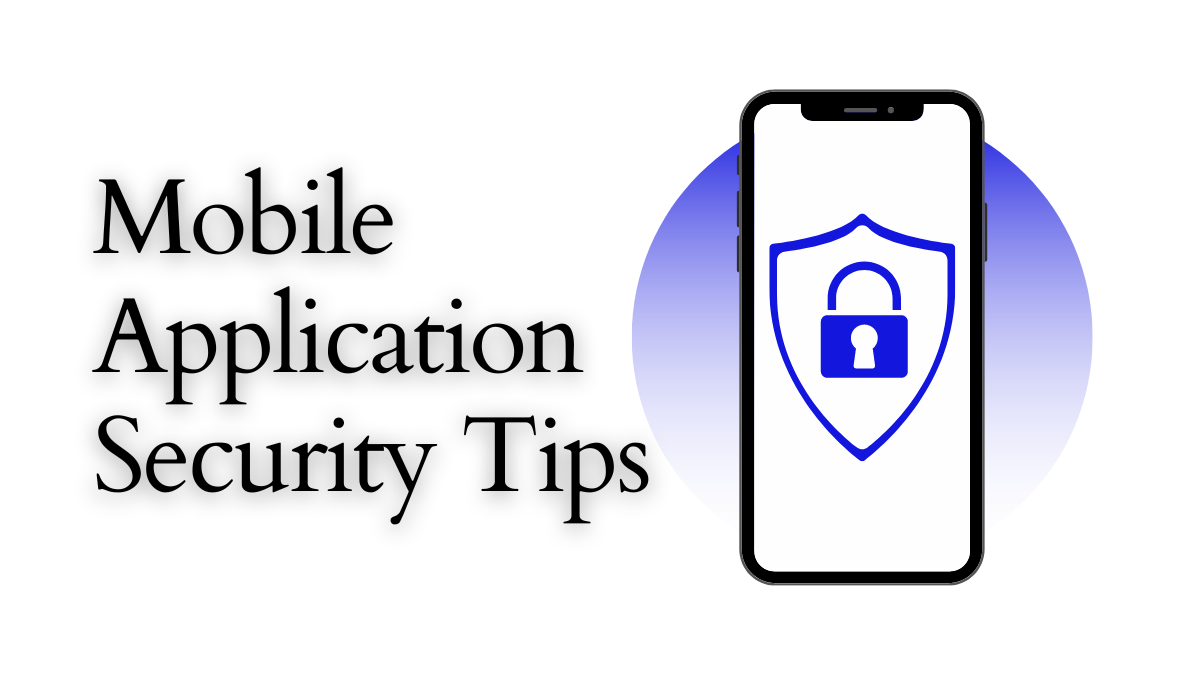Mobile Application Security Tips to Keep Your App Secure

Mobile applications are a great way to stay connected and engaged with customers, partners, and employees. However, they can also be vulnerable to security threats if not properly secured. Mobile application security is essential for protecting user data and preventing malicious actors from taking advantage of vulnerabilities in apps.
Mobile Application Security
Mobile application security is the process of making sure that mobile applications are secure and free from vulnerabilities. The main purpose of mobile application security is to protect the data, systems, and networks associated with the mobile app. In order to achieve this goal, developers must ensure that their apps are developed with a focus on security in mind throughout all stages of the development process. This should include using secure coding principles, implementing authentication and authorization, encrypting data in transit and at rest, and regularly testing the application for security vulnerabilities.
Mobile Application Security Tips
An increasingly mobile world has made it easier than ever to access data and information on the go. However, this ease of access can create security risks if proper steps are not taken to protect mobile applications. Here are some tips for better mobile application security:
Use a Secure Development and Code Review Process
It is important to develop apps with security in mind, using industry-standard security practices and tools. This includes code review, secure coding guidelines, and automated security testing. This is the reason, more and more businesses are investing in reliable DevSecOps approaches to develop better and secure apps. A secure code review will also help identify any potential security issues and ensure that the app is not vulnerable to malicious attacks. Additionally, use automated testing tools to run tests on each component of the app prior to release.
Secure your Network
Mobile devices are often connected to networks, and therefore can be vulnerable to cyber-attacks. Therefore, it is essential that you secure your mobile application’s backend infrastructure with firewalls and anti-malware measures. Furthermore, use VPNs or virtual private networks for remote access to ensure that confidential data is always encrypted and protected from malicious entities.
Implement Identity and Access Management (IAM)
IAM tools provide an extra layer of security that helps to protect data from unauthorized access. Ensure that each user is assigned unique credentials and access privileges, and then track activity logs on a regular basis to identify any suspicious activity or attempts at malicious attacks. This ensures enhanced security for your mobile application to protect customer or business data.
Monitor your Application’s Performance
Monitor your mobile application’s performance regularly to detect any potential vulnerabilities or issues with the code. Keep an eye out for unexpected behavior, such as slow loading times, crashes, and other errors that can indicate a vulnerability in the system. Investing in automated app testing tools is a great idea to put the testing process on autopilot.

Use Advanced Encryption Methods
Encrypt all stored data on the device and also for data that is being transmitted over the network. This will help to protect any sensitive information and ensure that it does not fall into the wrong hands. Furthermore, use secure communication protocols such as SSL (Secure Sockets Layer) or TLS (Transport Layer Security) to encrypt all communication between your application and its users.
Utilize a Secure Authentication Process
Mobile applications should use strong user authentication to protect sensitive data from unauthorized access. A secure authentication process is essential to protect your mobile application from malicious attacks. Make sure that you require users to enter a username and password combination before they can access the application as well as validate their identities with two-factor authentication whenever possible. Additionally, consider implementing an account lockout policy that locks a user out after a set number of failed login attempts.
Monitor Application Usage
Tracking how users interact with your application can help detect any malicious or suspicious behavior. Analysis of real-time and past data can reveal any potential threats. For this purpose, you can use advanced app monitoring tools to ensure nothing bad is happening with your app. This will ensure a smooth mobile experience while protecting users from security threats.
Test your Application for Vulnerabilities
To ensure that your mobile application is secure, it’s important to regularly test the code for any potential vulnerabilities. Consider utilizing a variety of automated testing tools to scan your application for common security issues, as well as engage in manual penetration testing to identify more complex issues.
Update Regularly
Regularly updating the app for latest security updates is essential to keep your app safe for users. Send regular updates to users when you have updated your mobile application to deliver an excellent and secure mobile app experience. Additionally, ensure that all third-party libraries and frameworks used in your app are kept up to date as well.
Final Thoughts
Mobile application security is a critical consideration for any business or organization that utilizes mobile applications. Without proper security measures in place, organizations are exposed to the risk of malicious attacks and data breaches, which can have devastating consequences. For this reason, it’s essential that all mobile applications be properly secured against potential threats.




